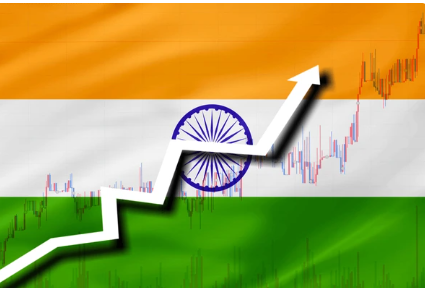
Elections in India are monumental events, characterized by vibrant political campaigns, intense public interest, and significant media coverage. Beyond their immediate political impact, elections also exert a profound influence on the country’s economic landscape. The Indian market, encompassing both the stock market and broader economic indicators, often responds dynamically to election cycles. This blog explores how elections shape market behavior in India, the underlying factors at play, and what investors might consider during these periods.
The Effect of Elections on Indian Economic Market
As elections approach, uncertainty about political outcomes can lead to increased market activity, with investors reacting to potential changes in economic policies and leadership. A clear and stable electoral mandate typically boosts market confidence, encouraging both domestic and foreign investments and leading to market rallies. In contrast, political instability or the prospect of unfavorable policy shifts can cause market downturns and capital outflows. Key sectors such as infrastructure, banking, and energy are particularly sensitive to election outcomes, as their performance is closely tied to government policies and economic reforms. Thus, elections serve as a pivotal event, influencing market trends and shaping the broader economic environment in India.
Key Factors Influencing Market Reactions
Several factors underpin the market’s response to elections in India:
- Economic Policies:
- Investors scrutinize the economic agendas of political parties, focusing on their stance towards reforms, taxation, public spending, and regulatory frameworks. Parties with clear, growth-oriented policies generally inspire greater market confidence.
- Political Stability:
- The ability of a party or coalition to secure a decisive mandate and form a stable government is crucial. Political stability tends to foster a conducive environment for economic growth, attracting both domestic and foreign investments.
- Global Economic Environment:
- Global economic conditions and geopolitical events also influence how Indian markets react to elections. For instance, during periods of global economic uncertainty, even positive election outcomes may have muted market responses.
- Investor Sentiment:
- Sentiment plays a significant role. Positive narratives around economic growth, structural reforms, and improved governance can drive bullish market trends, while negative sentiment can have the opposite effect.
Case Studies: Historical Market Responses
- 2014 General Elections:
- The election of a pro-business government led by the Bharatiya Janata Party (BJP) resulted in a significant market rally. The promise of economic reforms and a strong mandate led to positive investor sentiment, driving market indices to new highs.
- 2019 General Elections:
- The re-election of the BJP with a clear majority further boosted market confidence. Investors anticipated continuity in economic policies and reforms, leading to another period of market gains.
Investment Strategies During Election Cycles
For investors, navigating the market during election periods requires a blend of caution and strategic positioning:
- Diversification:
- Spreading investments across various sectors and asset classes can mitigate risks associated with electoral volatility.
- Long-Term Perspective:
- Maintaining a long-term investment horizon helps in weathering short-term market fluctuations caused by electoral outcomes.
- Informed Decision-Making:
- Keeping abreast of political developments, economic policies, and market trends enables more informed investment decisions. Engaging with financial advisors and using analytical tools can provide deeper insights.
- Cautious Optimism:
- While optimism is important, it’s crucial to remain cautious, especially in the face of speculative trading and heightened volatility.
Conclusion
Elections in India are pivotal events that extend their influence far beyond the political sphere, significantly impacting market dynamics. Understanding the interplay between electoral outcomes and market behavior is essential for investors seeking to navigate these periods effectively. By recognizing the patterns, factors, and strategic approaches associated with electoral cycles, investors can better position themselves to capitalize on opportunities and mitigate risks. As India continues to grow as a major economic powerhouse, the relationship between elections and market trends will undoubtedly remain a critical area of focus for market participants.
FAQs on The Interplay of Elections and Market Dynamics in India
1. How do elections in India affect stock market performance?
Elections in India often lead to increased volatility in the stock market. Investors react to the uncertainty surrounding election outcomes, policy changes, and potential shifts in economic priorities. Positive sentiments arise from a stable government with business-friendly policies, while uncertainty or unexpected results can lead to market dips.
2. What are the typical market trends observed during election periods in India?
Historically, the Indian stock market experiences increased volatility in the months leading up to and immediately following elections. Markets may rally if investors anticipate a favorable outcome, such as a stable government or pro-business policies. Conversely, markets may decline if there is political uncertainty or fear of unfavorable policies.
3. Do different types of elections (e.g., general vs. state elections) have varying impacts on the market?
Yes, general elections tend to have a more significant impact on the market compared to state elections. General elections can lead to substantial changes in national economic policies and leadership, which have broader implications for the market. State elections can also impact the market but typically to a lesser extent, unless they significantly alter the political landscape.
4. How do foreign investors react to Indian elections?
Foreign investors closely monitor Indian elections as political stability and economic policies directly affect their investment decisions. A clear mandate and stable government can boost foreign investor confidence, leading to increased capital inflows. Conversely, political instability or unfavorable policy changes can cause foreign investors to withdraw funds, leading to market declines.
5. What sectors are most affected by election outcomes in India?
Sectors such as infrastructure, banking, and energy are often the most affected by election outcomes. These sectors are closely linked to government policies and economic reforms. For instance, a government focused on infrastructure development may boost related stocks, while uncertainty in banking regulations can impact financial stocks.

